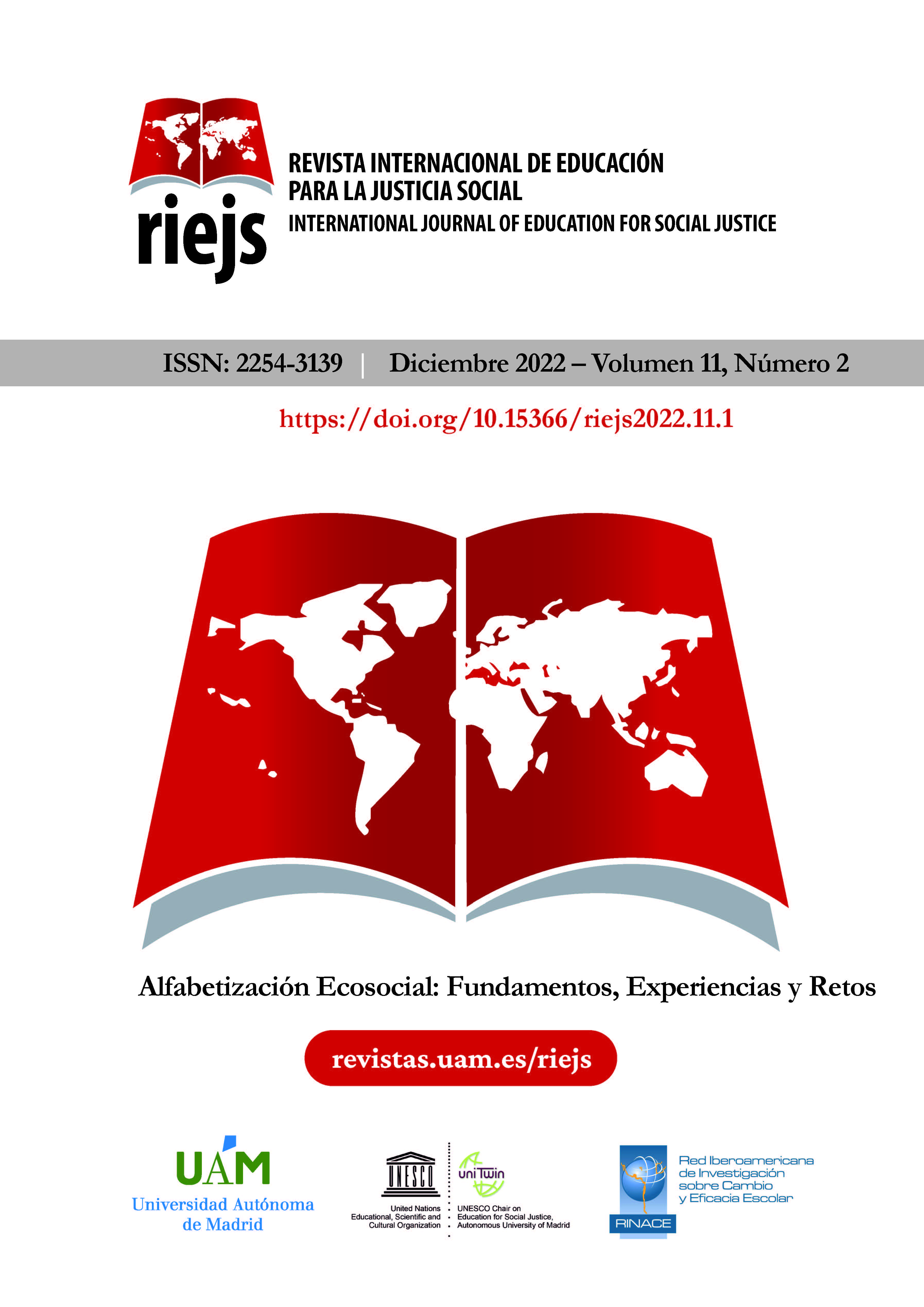Differentiated absorption capacity in ten public schools in Chile
Keywords:
Absorptive Capacity, School Improvement, Public Schools, Technical Assistance, Organizational Learning
This work is licensed under a Creative Commons Attribution-NonCommercial-NoDerivatives 4.0 International License.
Abstract
The question that the study sought to answer is: What factors influence different public schools to have a different capacity to absorb knowledge from a school improvement project? To this end, the effects of a technical assistance project promoted by a university centre that sought to strengthen relational trust in ten public basic schools in two municipalities in Chile during the years 2020 and 2021 were studied. A qualitative methodology was used, based on semi-structured interviews and documentary review. A first finding was that the schools studied showed different levels of knowledge absorption, which could be classified into the following three: changes in beliefs and/or competencies of school leaders, development of new management and relationship practices, and institutionalisation of new practices. A second finding was the usefulness of having an analytical device that considers the characteristics of the absorbing school, as well as those of the external partner and the type of relationship between the two during the project, all factors that affect organisational learning capacity. The analytical device used, based on a pre- existing one on the absorption capacity of intermediate educational institutions, showed its relevance, but also revealed the need to integrate certain complementary factors.
Downloads
References
Anderson, M. (2017). Transformational leadership in education: A review of existing literature. International Social Science Review, 93(1), 1-13.
Arancibia, R. y Chandía, E. (2020). Estilo de liderazgo del director y clima escolar en un establecimiento educacional al implementar un programa externo de intervención: Validación de instrumento. Estudios Pedagógicos, 46(2), 25-38. https://doi.org/10.4067/S0718-07052020000200025
Bellei, C., Osses, A. y Valenzuela, J. P. (2010). Asistencia técnica educativa. De la intuición a la evidencia. Editorial Ocholibros.
Bello Villablanca, J. R. y López-Yáñez, J. (2022). Distribución del liderazgo y éxito escolar: análisis de redes sociales en escuelas chilenas. REICE. Revista Iberoamericana sobre Calidad, Eficacia y Cambio en Educación, 20(4), 11-27. https://doi.org/10.15366/reice2022.20.4.001
Bryk, A., Gomez, L., Grunow, A. y LeMahieu, P. (2021). Aprendiendo a mejorar: Seis principios para el mejoramiento continuo en educación. Fundación Educacional Oportunidad.
Coburn, C.E. y Penuel, W.R. (2016). Research–practice partnerships in education: Outcomes, dynamics, and open questions. Educational researcher, 45(1), 48-54. https://doi.org/10.3102/0013189X16631750
Cohen, W. M. y Levinthal, D. A. (1990). Absorptive capacity: A new perspective on learning and innovation. Administrative science quarterly, 35(1), 128-152. https://doi.org/10.2307/2393553
Collinson, V. y Cook, T. F. (2013). Organizational learning: Leading innovations. International Journal of Educational Leadership and Management, 1(1) 69-98. https://doi.org/10.4471/ijelm.2013.03
Daly, A. J. y Finnigan, K. S. (2010). A bridge between worlds: Understanding network structure to understand change strategy. Journal of Educational Change, 11(2), 111-138. https://doi.org/10.1007/s10833-009-9102-5
Denzin, N. K. y Lincoln, Y. S. (1998). Collecting and interpreting qualitative material. Sage.
Farrell, C. C. y Coburn, C. E. (2017). Absorptive capacity: A conceptual framework for understanding district central office learning. Journal of Educational Change, 18(2), 135-159. https://doi.org/10.1007/s10833-016-9291-7
Farrell, C. C., Coburn, C. E. y Chong, S. (2019). Under what conditions do school districts learn from external partners? The role of absorptive capacity. American Educational Research Journal, 56(3), 955-994. https://doi.org/10.3102/0002831218808219
Fernández, N. y Álvarez, G. (2007). ¿Cómo se encuentran las instituciones de educación superior Venezolanas con relación al resto del mundo en cuanto al aprendizaje organizacional se refiere? REICE. Revista Iberoamericana sobre Calidad, Eficacia y Cambio en Educación, 5(3), 190-209.
Finnigan, K. S. y Daly, A. J. (2012). Mind the gap: Organizational learning and improvement in an underperforming urban system. American Journal of Education, 119(1), 41-71. https://doi.org/10.1086/667700
Flick, U. (2004). Introducción a la investigación cualitativa. Ediciones Morata.
Honig, M. I. (2012). District central office leadership as teaching: How central office administrators support principals’ development as instructional leaders. Educational Administration Quarterly, 48(4), 733-774. https://doi.org/10.1177/0013161X12443258
Kolleck, N. (2021). Trust in cross-sector alliances: Towards a theory of relational trust in multi-professional education networks. Educational Management Administration & Leadership, 1-21. https://doi.org/10.1177/17411432211043876
Krippendorff, K. (2004). Content analysis: An introduction to its methodology. Sage.
Lenart, R. (2014). Operationalization of absorptive capacity. International Journal of Contemporary Management, 13(3), 86-98.
López-Yáñez, J. (2010). Sostenibilidad de la innovación en los centros escolares: Bases institucionales. Profesorado. Revista de Curriculum y Formación de Profesorado, 14(1), 9-28.
López, V., Ahumada, L. y Olivares, R. (2012). Escala de medición del aprendizaje organizacional en centros escolares. Psicothema, 24(2), 323-329.
Marchant, J. P., Salin, A. y Williams, J. (2009). Experiencias de intervención institucional en escuelas vulnerables en Latinoamérica. REICE. Revista Iberoamericana sobre Calidad, Eficacia y Cambio en Educación. 7(3), 153-170.
Mintrop, R. (2020). Design-based school improvement: A practical guide for education leaders. Harvard Education Press.
Mintrop, R. y Órdenes, M. (2022). Resolución de problemas para la mejora continua. Una guía práctica para líderes educativos. LOM.
Murillo, F. J. (2005). La investigación en eficacia escolar y mejora de la escuela como motor para el incremento de la calidad educativa en Iberoamérica. REICE. Revista Iberoamericana sobre Calidad, Eficacia y Cambio en Educación, 3(2), 1-12.
Ríos, D. y Villalobos, P. (2016). Mejora educativa a partir de asesoría externa: El complejo camino hacia la sostenibilidad. Estudios Pedagógicos, 42(2), 315-330. https://doi.org/10.4067/S0718-07052016000200018
Romero, C. (2021). Liderazgo directivo en escuelas que superan las barreras del contexto. REICE. Revista Iberoamericana sobre Calidad, Eficacia y Cambio en Educación, 19(1), 83-103. https://doi.org/10.15366/reice2021.19.1.005
Sun, P. Y. y Anderson, M. H. (2010). An examination of the relationship between absorptive capacity and organizational learning, and a proposed integration. International Journal of Management Reviews, 12(2), 130-150. https://doi.org/10.1111/j.1468-2370.2008.00256.x
Valles, M. S. (1997). Técnicas cualitativas de investigación social. Reflexión metodológica y práctica profesional. Síntesis.
Volberda, H. W., Foss, N. J. y Lyles, M. A. (2010). Perspective-absorbing the concept of absorptive capacity: How to realize its potential in the organization field. Organization Science, 21(4), 931-951. https://doi.org/10.1287/orsc.1090.0503
Zahra, S. A. y George, G. (2002). Absorptive capacity: A review, reconceptualization, and extension. Academy of Management Review, 27(2), 185-203. https://doi.org/10.5465/amr.2002.6587995

